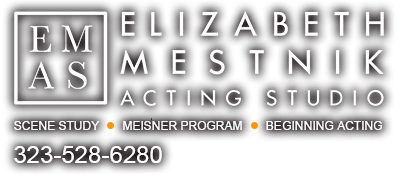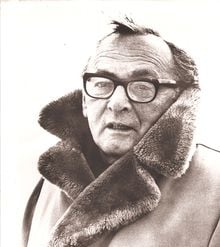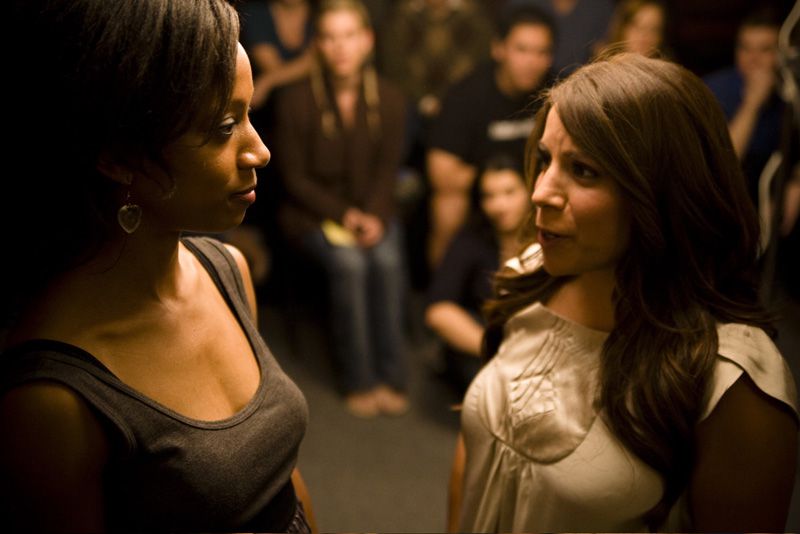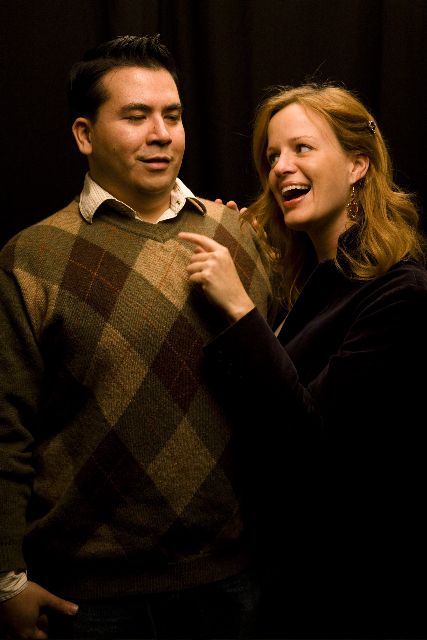An interview with some if our working actors.
At EMAS we have a number of students and alumni who are out there working professionally – I had a chance to get a little insight from 5 of our students and to talk about what tools they use on set and what the Meisner training brings to their performances.
I spoke with:
Sharif Atkins: currently he plays Clinton Jones on TNT’s White Collar, other credits include The Good Wife, The 4400 and 4 years as Dr. Michael Galant on ER.
Susane Lee: appeared in The Soloist with Jamie Foxx, Nickelodeon’s True Jackson, VP and the film festival favorite Kosher Pig.
Christopher T. Wood: whose credits include Ira Ungerleider in Friends with Benefits and roles on The Office and Without a Trace.
Charles Michael Davis: currently plays Liam on ABC family’s Switched at Birth. He’s also shooting for BET’s The Game.
Lily Holleman: most recently starred in the West Coast premier of Circle Mirror Transformation at South Coast Repertory. She also starred in the independent movie urFRENZ which will be on Video on Demand this Fall.
Elizabeth: So, we have a lot of students at the studio who are just at the beginning of their training or people who are just trying to decide what direction to go in to start their acting careers – could you share a little about your first steps into acting?
Sharif: As a young actor, the Meisner Training was so important to me. It helps you know who you are, which is key to being a successful actor.
Chris: Definitely, it really taught me how to bring myself to any role I may play. When you are starting out they don’t want big character choices – they just want you to “be the guy” they are casting. I got very comfortable being myself in a variety of imaginary circumstances.
Sharif: Yes, and the ability to access any emotion in a fictional context is priceless. Elizabeth, I always remember that moment in class when I had an emotional breakthrough when doing an activity. It is the doing that fuels the emotions, and it is the emotion that drives the doing. When you see it at work it is beautiful, and so helpful for the actor’s process.
Susane: The Meisner work really gave me the tools to approach a role whether it’s for an audition or for something that I’ve booked. That gave me the confidence to work deeply and effectively enough to really be free and enjoy the ride of the scene no matter what the medium is.
Charles: Having no theatre experience and very few credits before I started the program – the sheer volume of stage time I had in class and the variety of exercises were invaluable to bringing me closer to the experience level of a working actor. I worked in every class – and my best was demanded every class. The program is so challenging that it has really helped me handle the demands of working on set or location.
Chris: Definitely, my toughest times as an actor always come in class with you…it makes being on set easy, like a vacation!
Elizabeth: That being said – what are the biggest challenges of being on set?
Lily: As an actor, we always have battles with insecurity, but those are few and far between when you know that your foundation is 100% solid. Once I got cast on very short notice, and during the short rehearsals, I got very sick – I just relied on the skills I learned at EMAS, the emotional preparation, the listening and responding as well as the vocal and physical warm ups to get me through – and I did it – with very little rehearsal. What you need to do is drilled into you – so preparing for a role becomes second nature.
Susane: It’s about trusting that you’ve paved the way for something magical to occur. I have to remember to breathe (no seriously) and to just give fully. In the Meisner work I’ve learned to effectively listen and respond so that I can stay open and alive to my partner and to trust whatever may happen between us.
Chris: For sure – you need to train in a way that your skills can get into your bones as opposed to your head – so when there is a challenge – it’s easier to call upon them.
Sharif: Often, my biggest challenge is wanting to make power-packed choices dripping with nuance for every moment of every scene. My cure for that actor malady, is relaxing into the simple Meisner exercise of observing behavior and trusting m y instincts, the script, the other actors and understanding my characters function. I still have to work hard to prepare so that the scene can eventually seem simple though, but once I’m on set – I just have to give over to the moment to moment work.
Charles: For me the difficult times come up when I am self conscious. Self- consciousness can really make you lose your focus. I always have to go back to the fundamentals – focus on your partner or on the circumstances, on what you as the character has to get done…focus on elements outside myself and as one of my favorite directors says “really listen”.
Elizabeth: So what made you decide to train at EMAS? Why do you recommend the program?
Sharif: I recommend EMAS because of Elizabeth Mestnik.
Elizabeth: Thanks!
Sharif: I trust that the teachers you hire match your level of insight, compassion and ability. You have to have an eye for BS as an acting teacher and you have it. You’ve called me on my own more than once in class. You have an eye for nuance, the little itty bitty details that others may miss. Those details could be what moves a scene from good to great.
Lily: I knew that the Meisner work was developed to prime an actor’s unique point of view – and that was lacking from my acting. But not anymore.
Charles: I was recommended to the school by a fellow actor – I took some introductory classes didn’t want to stop – so I took the whole 2 year program.
Susane: Elizabeth constantly pushed us – I was in Charles’ class – and he’ll agree – she pushed us always to strive for excellence. I am definitely a stronger actor having gone through the 2 year program.
Charles: Yes – and you get a lot of personal attention at EMAS. It expanded my emotional range and strengthened my sense of truth.
Chris: I recommend EMAS because it made me a working actor.
Lily: You should study at EMAS if you want to inspire and be inspired and take a unique journey of self discovery that allows you to be a professional actor.
Sharif: When you look in the dictionary under reall really good , high quality acting teachers, of the many faces you will see – you will no doubt see Elizabeth’s.
Elizabeth: Oh, wow… Thanks so much everybody.
Another article from the Elizabeth Mestnik Acting Studio












 Repetition with changes. Now the actor is allowed to change the repetition when their partner inspires them to do so. It may be as simple as a fact “you scratched your nose”, or it may go deeper to “you are flirting with me”. At first whatever they notice and can put into words is valid. And when they can’t find the words, they continue to repeat. We want to make sure that they aren’t thinking before they speak and they aren’t intellectually searching for a way to change the repetition. It is better to just repeat than to intellectualize. This phase
Repetition with changes. Now the actor is allowed to change the repetition when their partner inspires them to do so. It may be as simple as a fact “you scratched your nose”, or it may go deeper to “you are flirting with me”. At first whatever they notice and can put into words is valid. And when they can’t find the words, they continue to repeat. We want to make sure that they aren’t thinking before they speak and they aren’t intellectually searching for a way to change the repetition. It is better to just repeat than to intellectualize. This phase Connection: You must know how to listen and give yourself permission to be affected by your acting partners and the imaginary circumstances of the scene.
Connection: You must know how to listen and give yourself permission to be affected by your acting partners and the imaginary circumstances of the scene.
